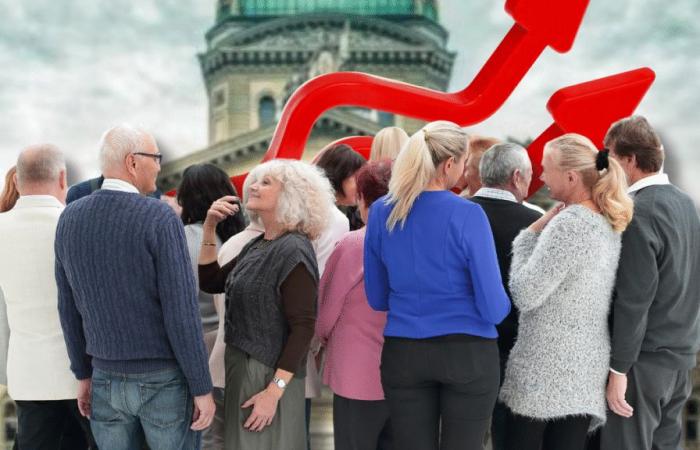The Federal Council wants to tax more heavily the withdrawal of the capital from the pension funds and life insurance. This could have a counterproductive effect, warn the specialists.
04.05.2025, 07:0404.05.2025, 07:04
Florence Vuichard / ch media
The Confederation must tighten the belt. The government has therefore put together a “train of reduction measures”, thanks to which it intends to cap the expenses at 3.6 billion from 2027. It wants to generate additional revenues in parallel – in particular by further imposing the withdrawals of capital of the 2nd and 3rd pillars. Because he believes that current taxation benefits people who perceive capital rather than a rent.
The announcement caused an uproar, but the Federal Council remained firm. Even if it means putting themselves on the most part of the active population. Because depending on the figures for the insurer, 60% of new retirees perceive “completely” or “partially” their old age service in the form of capital.
And this for very diverse reasons: To finance real estate or absorb mortgagesfor lack of heirs or for a return to the country of origin. Some people are also betting on a shortened life expectancy. Others, encouraged by their banking and foresight advisers, imagine of tax or financial advantages.
The Federal Council expects the measure to generate 160 million revenues per year. A hypothesis of which the Swiss insurance association strongly doubts. This is what emerges from his response to the consultation, of which CH Media, editor of watson, obtained a copy. On the contrary, the organization wonders if, “in the medium term”, public authorities, and in particular the municipalities and the cantons, would not be used more.
State revenues and expenditure
Here are his arguments: if to spare individually becomes less attractive in terms of taxation, the population will consume more and will no longer seek to save. This will then lead to a greater load for state safety nets. Especially since individual foresight also covers risks such as disability or incapacity for work.
But the tax reform could have all other consequences, adds the association:
“It would lead to an anticipated wave of pensions before its entry into force”
Indeed, the threat of an increase in taxes should in particular encourage people with significant capital to retire before the change of system, and therefore a few years earlier.
In its response to the consultation, the ridge thus notes that the community would have doubly to lose. First, the “voluntarily higher taxes for the ages capital” would be eliminated and, secondly, those on the income of people who take an early retirement would also disappear.
In view of the demographic evolution, a wave of early departures would not really fall. It could aggravate the shortage of skilled labor that we are talking about so much. It should further increase with baby boomers who gradually leave the labor market. The hardest part remains to come: the most numerous age class in Switzerland, that of 1964, will not retire in good and due in 2029. “It is a great challenge for the local economy,” declared Boris Zürcher, former Cadre to the Confederation, in an interview with CH Media About two years ago. He added:
“The shortage awaits us”
The consultation on these reduction measures and this reform of the 2nd and 3rd pillars ends on Monday. The Swiss Insurance Association should not be the only one to issue reservations.
French adaptation by Valentine Zenker






